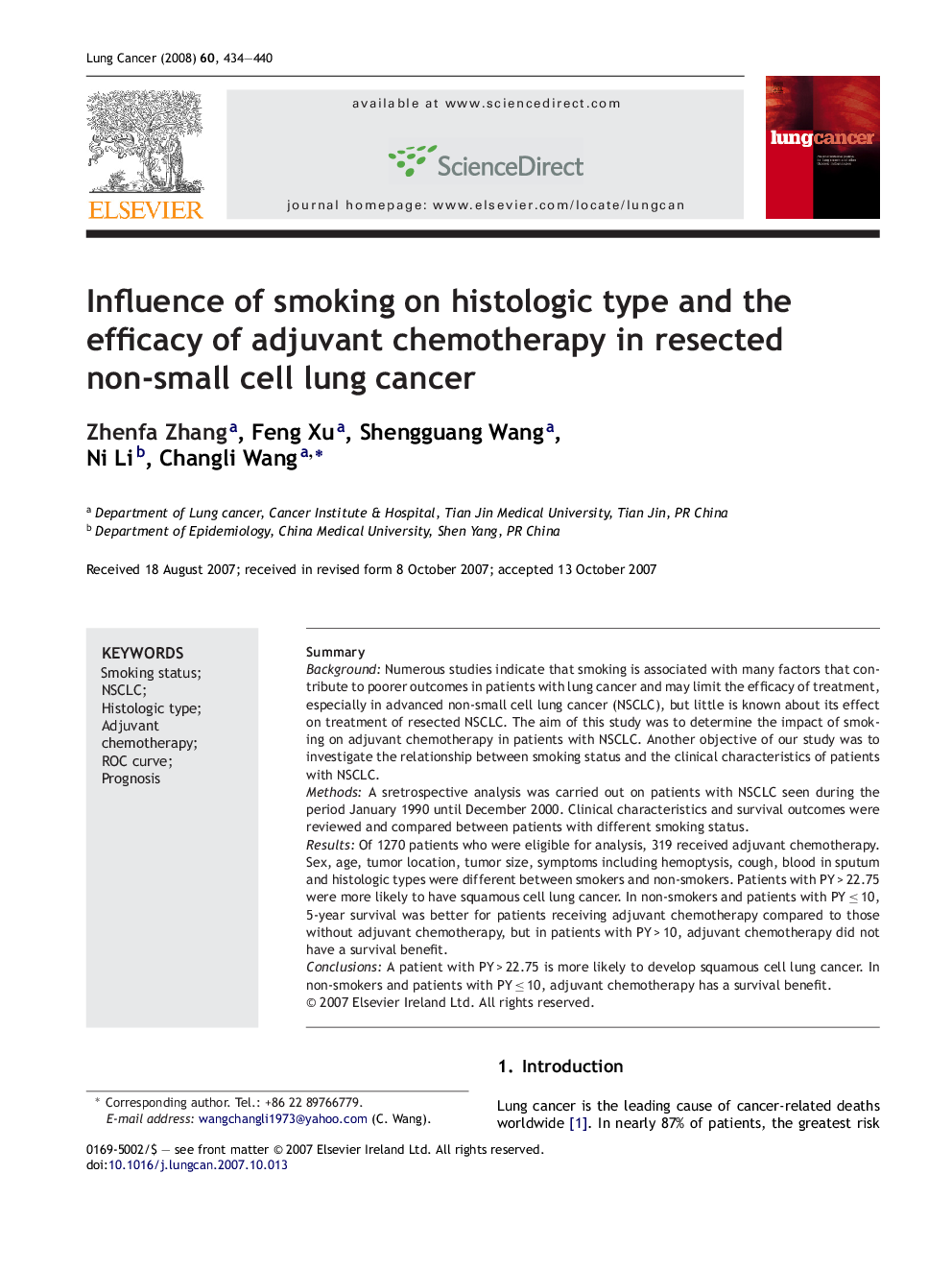| Article ID | Journal | Published Year | Pages | File Type |
|---|---|---|---|---|
| 2143272 | Lung Cancer | 2008 | 7 Pages |
SummaryBackgroundNumerous studies indicate that smoking is associated with many factors that contribute to poorer outcomes in patients with lung cancer and may limit the efficacy of treatment, especially in advanced non-small cell lung cancer (NSCLC), but little is known about its effect on treatment of resected NSCLC. The aim of this study was to determine the impact of smoking on adjuvant chemotherapy in patients with NSCLC. Another objective of our study was to investigate the relationship between smoking status and the clinical characteristics of patients with NSCLC.MethodsA sretrospective analysis was carried out on patients with NSCLC seen during the period January 1990 until December 2000. Clinical characteristics and survival outcomes were reviewed and compared between patients with different smoking status.ResultsOf 1270 patients who were eligible for analysis, 319 received adjuvant chemotherapy. Sex, age, tumor location, tumor size, symptoms including hemoptysis, cough, blood in sputum and histologic types were different between smokers and non-smokers. Patients with PY > 22.75 were more likely to have squamous cell lung cancer. In non-smokers and patients with PY ≤ 10, 5-year survival was better for patients receiving adjuvant chemotherapy compared to those without adjuvant chemotherapy, but in patients with PY > 10, adjuvant chemotherapy did not have a survival benefit.ConclusionsA patient with PY > 22.75 is more likely to develop squamous cell lung cancer. In non-smokers and patients with PY ≤ 10, adjuvant chemotherapy has a survival benefit.
